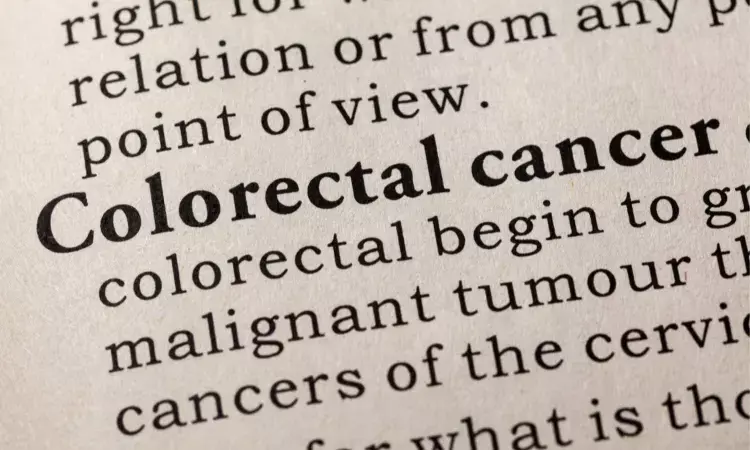- Home
- Medical news & Guidelines
- Anesthesiology
- Cardiology and CTVS
- Critical Care
- Dentistry
- Dermatology
- Diabetes and Endocrinology
- ENT
- Gastroenterology
- Medicine
- Nephrology
- Neurology
- Obstretics-Gynaecology
- Oncology
- Ophthalmology
- Orthopaedics
- Pediatrics-Neonatology
- Psychiatry
- Pulmonology
- Radiology
- Surgery
- Urology
- Laboratory Medicine
- Diet
- Nursing
- Paramedical
- Physiotherapy
- Health news
- Fact Check
- Bone Health Fact Check
- Brain Health Fact Check
- Cancer Related Fact Check
- Child Care Fact Check
- Dental and oral health fact check
- Diabetes and metabolic health fact check
- Diet and Nutrition Fact Check
- Eye and ENT Care Fact Check
- Fitness fact check
- Gut health fact check
- Heart health fact check
- Kidney health fact check
- Medical education fact check
- Men's health fact check
- Respiratory fact check
- Skin and hair care fact check
- Vaccine and Immunization fact check
- Women's health fact check
- AYUSH
- State News
- Andaman and Nicobar Islands
- Andhra Pradesh
- Arunachal Pradesh
- Assam
- Bihar
- Chandigarh
- Chattisgarh
- Dadra and Nagar Haveli
- Daman and Diu
- Delhi
- Goa
- Gujarat
- Haryana
- Himachal Pradesh
- Jammu & Kashmir
- Jharkhand
- Karnataka
- Kerala
- Ladakh
- Lakshadweep
- Madhya Pradesh
- Maharashtra
- Manipur
- Meghalaya
- Mizoram
- Nagaland
- Odisha
- Puducherry
- Punjab
- Rajasthan
- Sikkim
- Tamil Nadu
- Telangana
- Tripura
- Uttar Pradesh
- Uttrakhand
- West Bengal
- Medical Education
- Industry
Increased adenoma detection rate may significantly reduce post-colonoscopy colorectal cancer risk in a FIT-based screening program

A cohort study from the Italian Colorectal Cancer screening program including more than 49,000 colonoscopies found a significant inverse association between endoscopists’ proficiency as measured by adenoma detection rate (ADR) and post-colonoscopy colorectal cancer (PCCRC). These finding suggest that targeting only poor performing endoscopists with measures to increase ADR may significantly reduce PCCRC risk. The findings are published in Annals of Internal Medicine.
Colorectal cancer (CRC) population screening programs based on fecal testing (FITs) represent the standard of care for CRC prevention in many Western countries. The ultimate effectiveness of these screening procedures relies on the accurate detection and removal of precancerous lesions and early invasive cancer in colonoscopies of persons with positive FIT results. However, it is known that there are high miss rates and high rates of performance variability among endoscopists.
Researchers from Veneto Tumor Registry, Azienda Zero, Padova, “Sapienza” University of Rome and Humanitas University in Milan, Italy, conducted a population-based cohort study of 49,626 colonoscopies done by 113 endoscopists between 2012 and 2017 after a positive FIT result. They report that 277 cases of PCCRC were diagnosed with a mean ADR of 48.3 percent. They noted a 2.35-fold cancer risk increase in the lowest performing endoscopists group compared to the highest performing group. According to the authors, endoscopist competence is key to screening effectiveness. These results strongly suggest tailored targeting of low performing endoscopists with interventions aimed at helping them increase their ADR and consequently help their patients by reducing their PCCRC risk.
Reference:
Manuel Zorzi, Giulio Antonelli, Claudio Barbiellini Amidei, Jessica Battagello, Bastianello Germanà, Flavio Valiante, Stefano Benvenuti, Alberto Tringali, Francesco Bortoluzzi, Erica Cervellin, Davide Giacomin, Tamara Meggiato, Erik Rosa-Rizzotto, Diego Fregonese, Manuela Dinca, Gianluca Baldassarre, Paola Scalon, Maurizio Pantalena, Luisa Milan, https://doi.org/10.7326/M22-1008
Dr Kamal Kant Kohli-MBBS, DTCD- a chest specialist with more than 30 years of practice and a flair for writing clinical articles, Dr Kamal Kant Kohli joined Medical Dialogues as a Chief Editor of Medical News. Besides writing articles, as an editor, he proofreads and verifies all the medical content published on Medical Dialogues including those coming from journals, studies,medical conferences,guidelines etc. Email: drkohli@medicaldialogues.in. Contact no. 011-43720751


